Audrey Weiand has seen 5 generations of her family threatened by Huntington’s disease. But her multidisciplinary team at Kaiser Permanente has been there to help her live life to the fullest. Pictured above, Audrey (in light blue) surrounded by her care team.
Audrey Weiand fills each day with giving.
The long-time Vacaville resident, 66, serves meals to homeless people. She joins her church in providing communion to people too sick to attend services.
A few years back, she even donated a kidney to a stranger.
All of this would be commendable in typical circumstances. But Audrey has Huntington’s Disease, a fatal genetic disorder passed from one generation to the next like a debt that will never be paid off.
A retired widow who lives independently, Audrey is not alone. She has her remaining family who dodged Huntington’s — and her large team of specialists at the Kaiser Permanente Northern California Genetic Movement Disorder Clinic located in Sacramento.
A ‘Cruel’ Disease
Huntington’s causes the progressive breakdown of nerve cells in the brain. Over time, it affects the individual’s ability to reason, walk, and speak. The clinic’s coordinator, genetic counselor Mara Sifry-Platt, termed it “cruel.”
Every child of a parent with the disease has a 50-50 chance of carrying the faulty gene. If they do, symptoms usually appear between the ages of 30 to 50 and worsen over the next 10 to 25 years. There is no cure. Ultimately, the sufferer succumbs to pneumonia, heart failure, or other complications.
Audrey remembers her family caring for her grandmother. “No one knew what it was or even wanted to talk about it.” An aunt and uncle were symptomatic very early in life. Her mother suffered from the disease, and 3 siblings passed away within 15 months.
While 90 to 95 percent of people at risk decide not to learn if they will develop Huntington’s, by her early 30s Audrey went to a geneticist and received the tragic news. It wasn’t until she was almost 60, however, that the disease’s shadow appeared.
“The changes come so gradually, until you realize one day that you have balance issues, cognitive problems, odd facial expressions and hand movements,” she said.
All Care Under One Roof
Audrey is a 30-year Kaiser Permanente member and one of approximately 100 Kaiser Permanente Huntington’s patients in Northern California using the clinic. Additional visitors include those who need screening, family members looking for resources, and patients with other genetic movement disorders. The clinic has the prestigious distinction of being a Huntington’s Disease Society of America Center of Excellence in partnership with U.C. Davis.
“We have the most extensive multidisciplinary Huntington’s Disease clinic in the country, which has been recognized by the Huntington’s Disease Association of America,” said clinic medical director, neurologist Suketu Khandhar, MD. “Our integrated approach means a multitude of providers can improve upon a patient’s condition.”
Patients visit a minimum of once a year, but can come more often. Not only do they see neurologists, geneticists, social workers, psychiatrists, and a physical therapist, but they have easy access to other specialists they need: speech therapists, occupational therapists, palliative care professionals, and financial assistance advisors.
“We are trying to keep these patients as well and strong for as long as we can,” said Sifry-Platt. “Part of that is our group summary of recommendations tailored for each patient.”
The clinic’s team has seen Audrey through deepening symptoms, the death of her beloved husband, and now her upcoming decision about what she will do when she can’t live alone anymore.
Audrey has even participated in a U.C. Davis research study on the disease — in the hope that there will be a cure one day for a future generation.
“I’m prepared — not scared,” Audrey said. “I don’t feel angry or bitter. I just want to bring more awareness and help people understand Huntington’s.”
“I can’t describe how inspiring Audrey is to all of us,” Dr. Khandhar said. “Whenever I am facing something of great impact, I ask myself, ‘What would Audrey do?’”
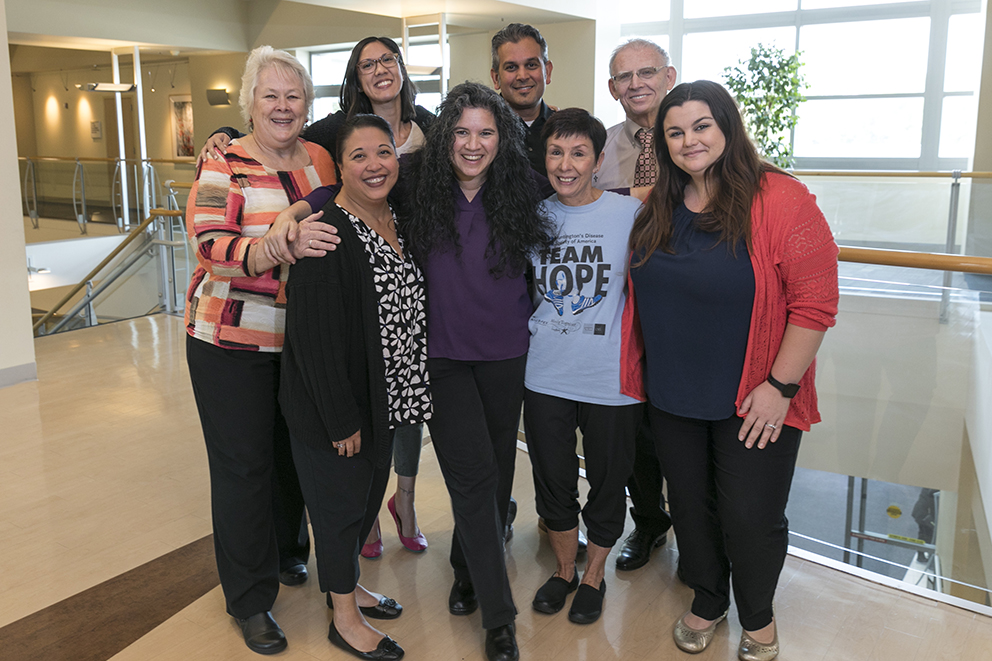
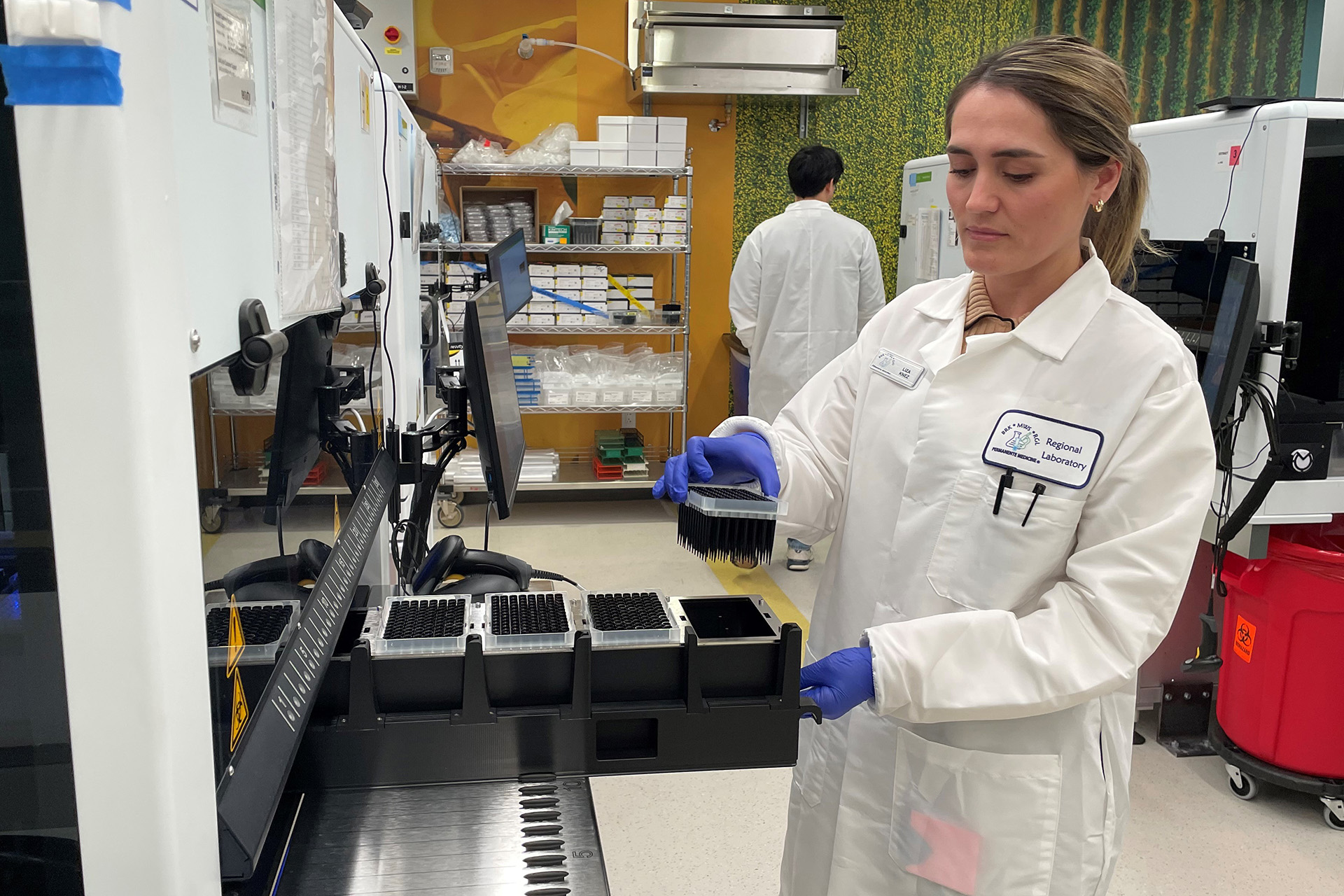
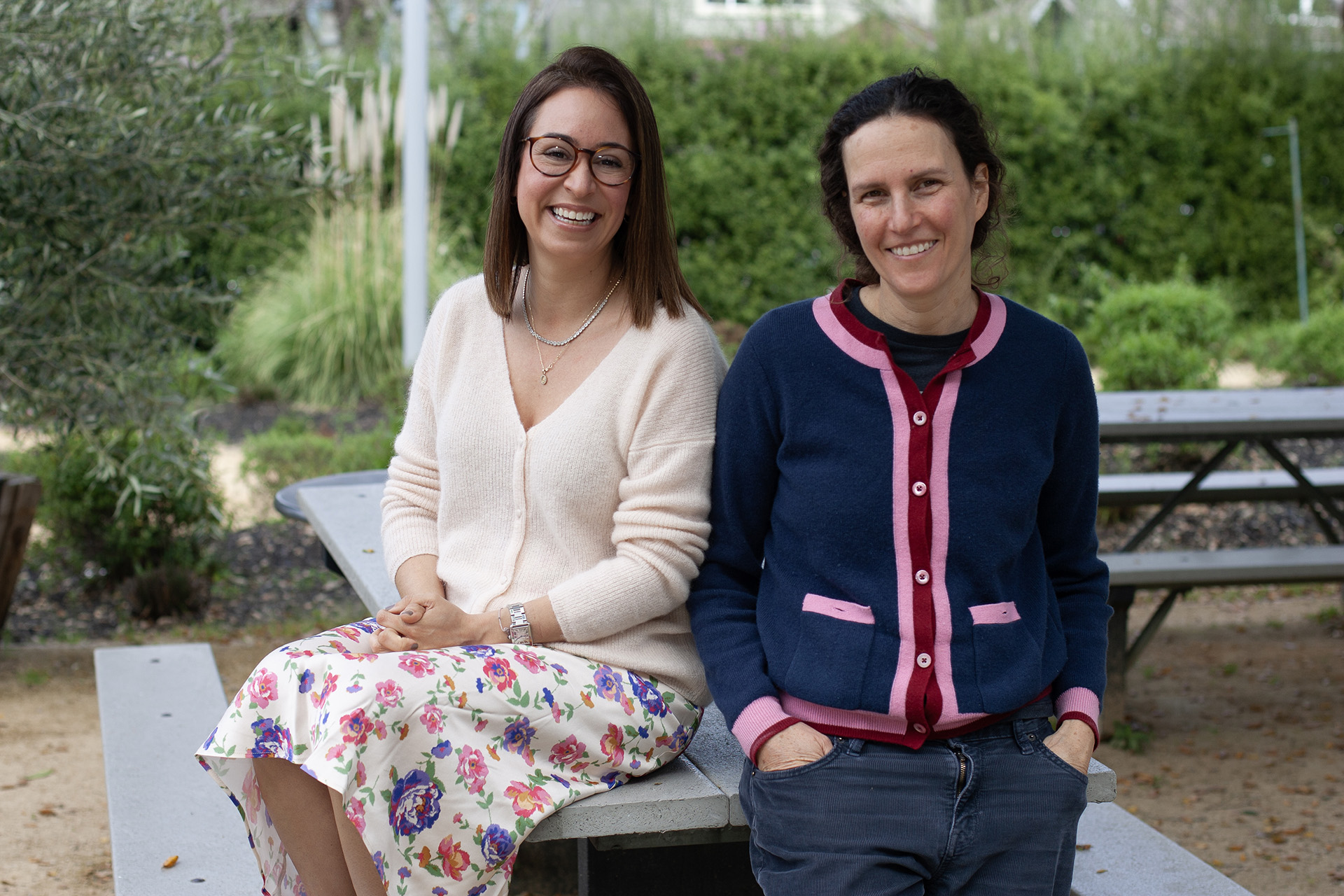
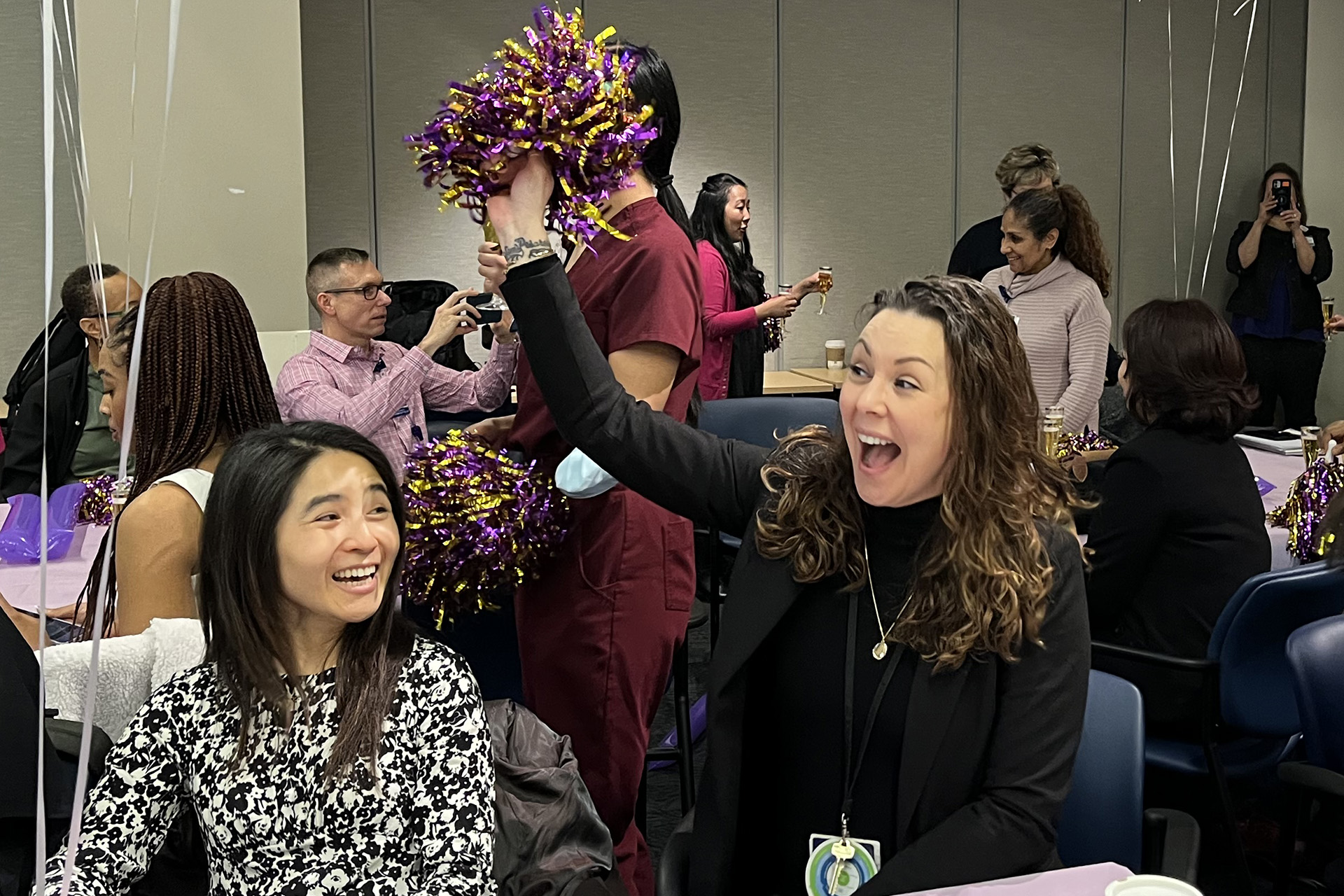
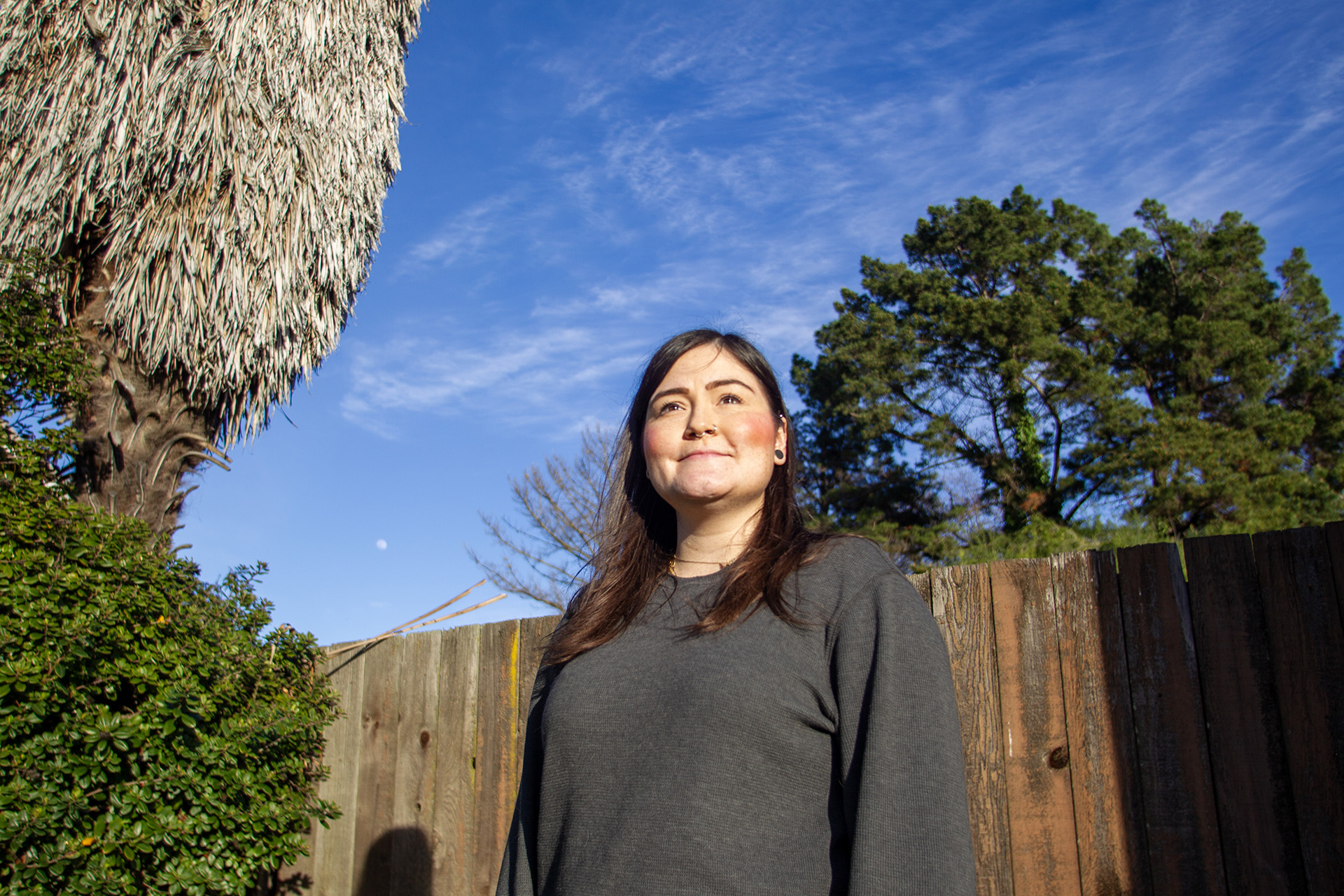
This Post Has 2 Comments
I honor Audrey and her strong story. She has such a beautiful soul and didn’t mind sharing it to the world. Much respect to her and family and the strong clinic employees, plus physicians, for being there for her and others who are going through a difficult time in life dealing with something that is so serious and others are not aware of. I salute you, Audrey WEIAND, and all please stay strong you are in God’s hands.
She and Kaiser patients are in great hands with Dr Khandhar! He’s very compassionate and excellent!